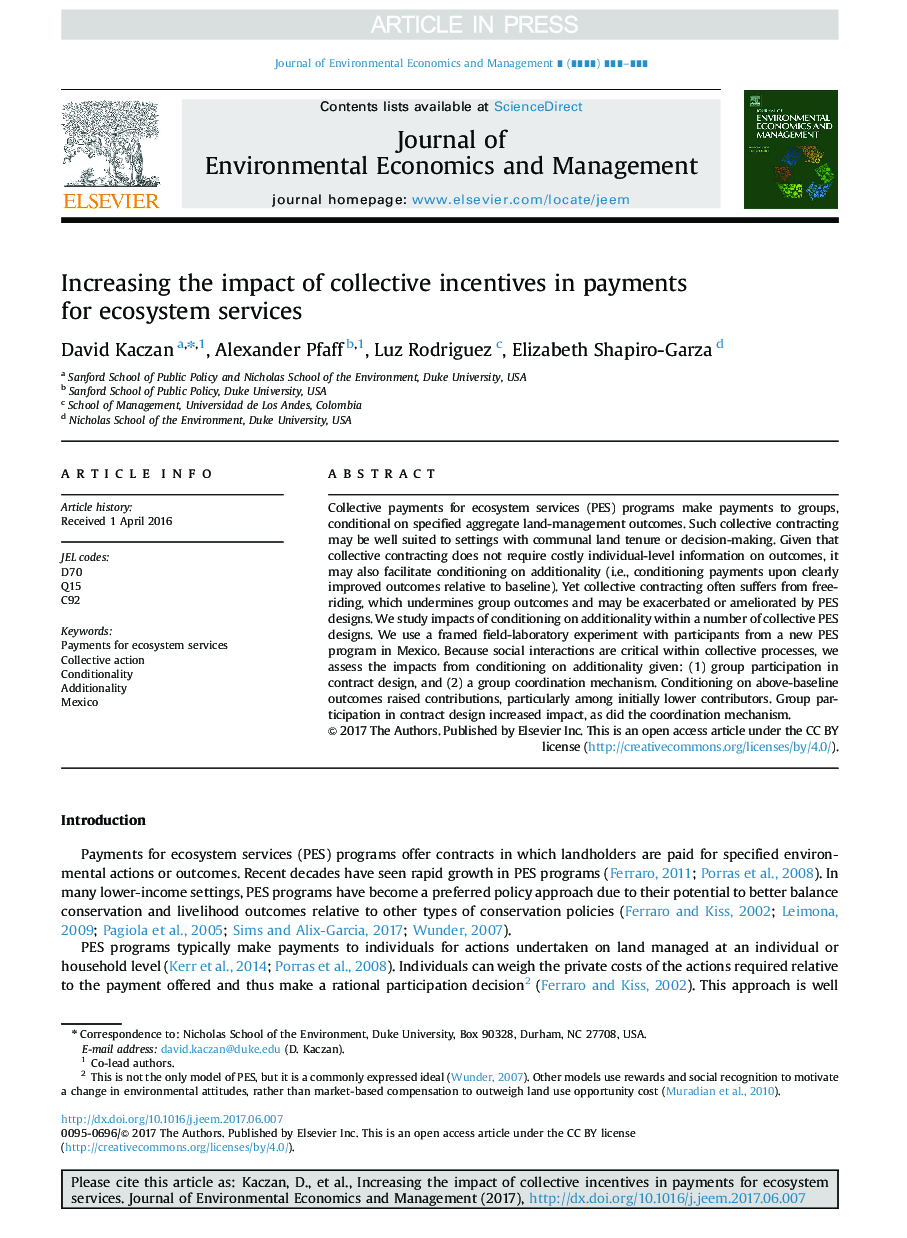| Article ID | Journal | Published Year | Pages | File Type |
|---|---|---|---|---|
| 7361519 | Journal of Environmental Economics and Management | 2017 | 20 Pages |
Abstract
Collective payments for ecosystem services (PES) programs make payments to groups, conditional on specified aggregate land-management outcomes. Such collective contracting may be well suited to settings with communal land tenure or decision-making. Given that collective contracting does not require costly individual-level information on outcomes, it may also facilitate conditioning on additionality (i.e., conditioning payments upon clearly improved outcomes relative to baseline). Yet collective contracting often suffers from free-riding, which undermines group outcomes and may be exacerbated or ameliorated by PES designs. We study impacts of conditioning on additionality within a number of collective PES designs. We use a framed field-laboratory experiment with participants from a new PES program in Mexico. Because social interactions are critical within collective processes, we assess the impacts from conditioning on additionality given: (1) group participation in contract design, and (2) a group coordination mechanism. Conditioning on above-baseline outcomes raised contributions, particularly among initially lower contributors. Group participation in contract design increased impact, as did the coordination mechanism.
Related Topics
Social Sciences and Humanities
Economics, Econometrics and Finance
Economics and Econometrics
Authors
David Kaczan, Alexander Pfaff, Luz Rodriguez, Elizabeth Shapiro-Garza,
